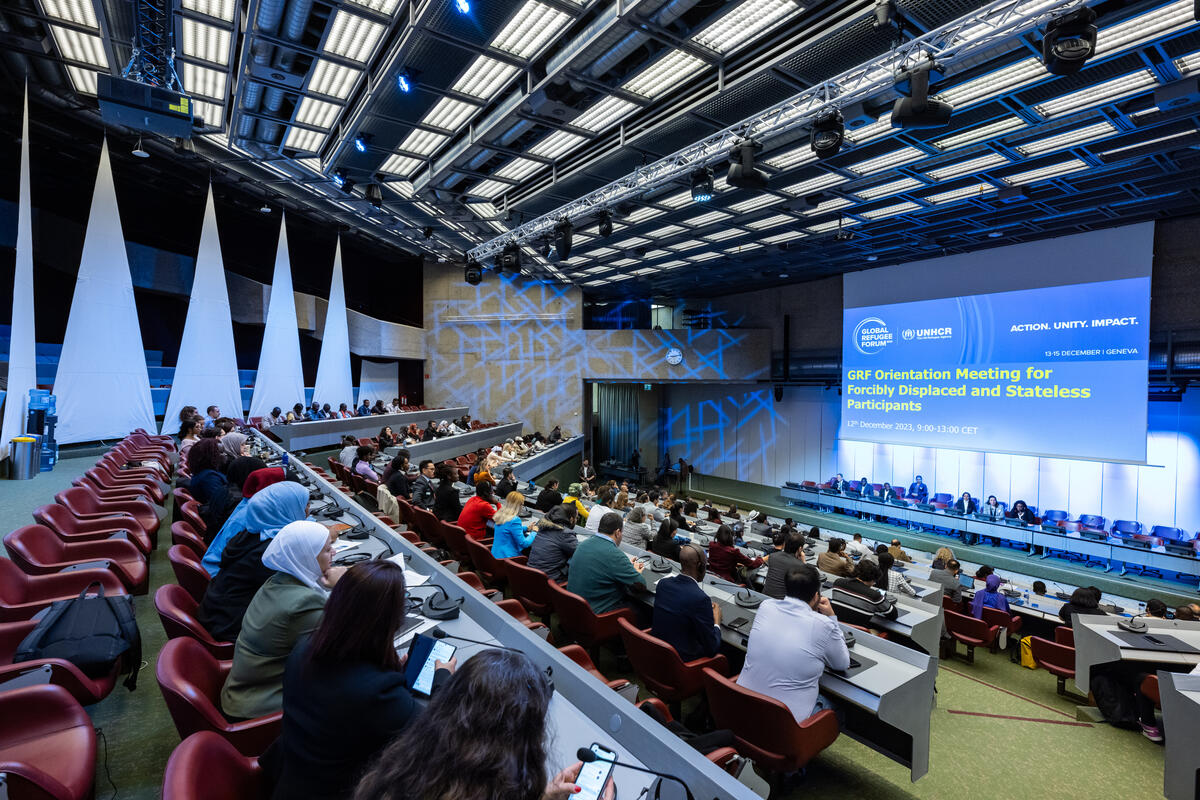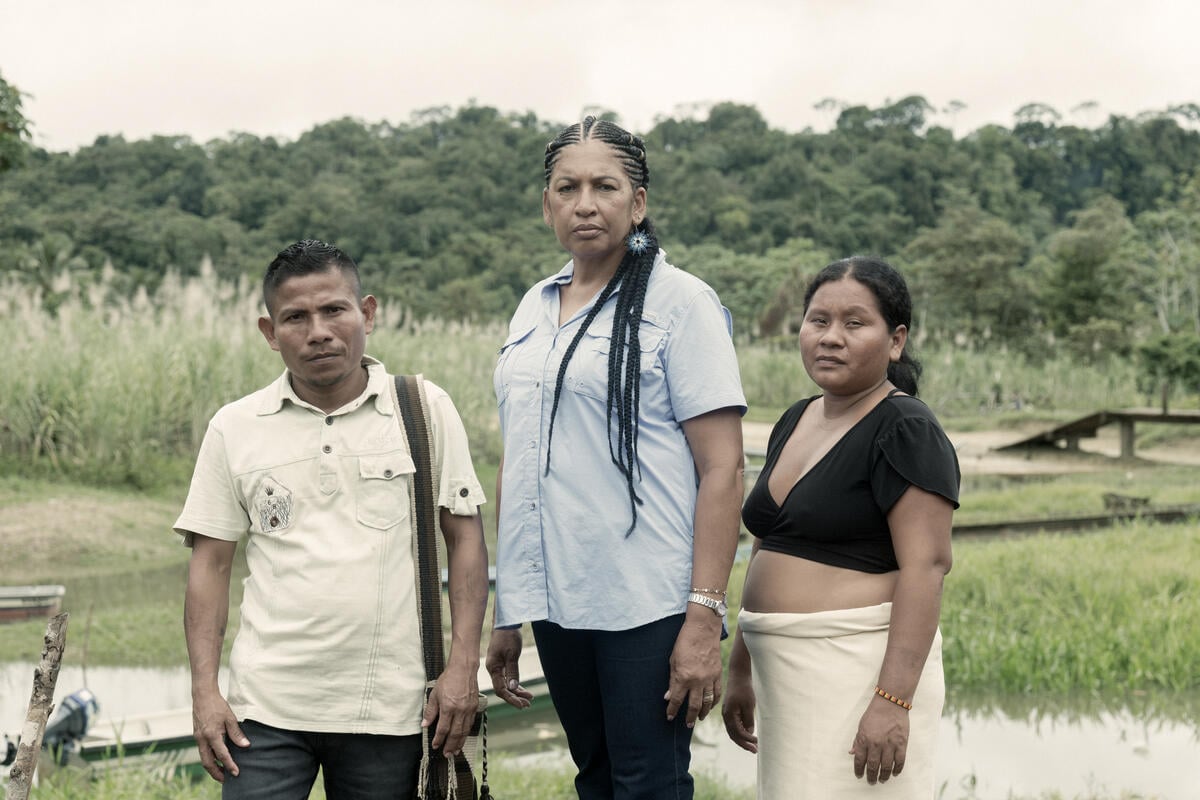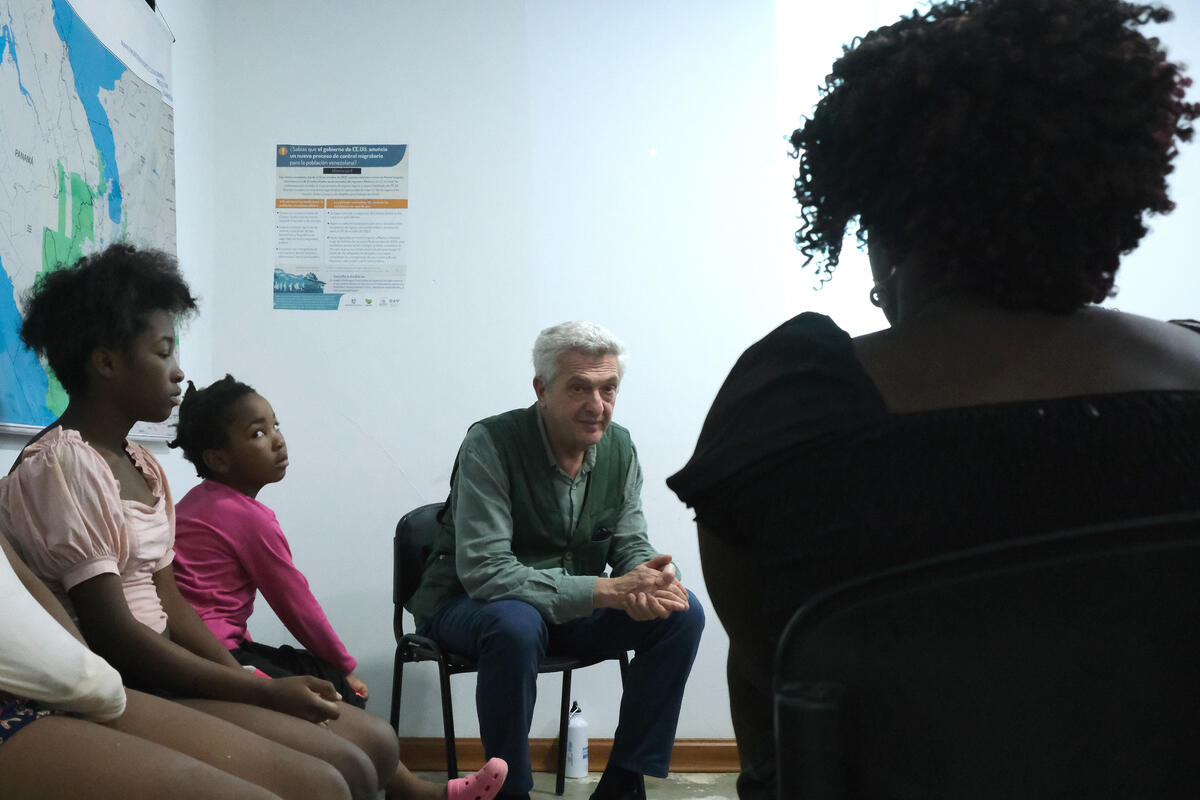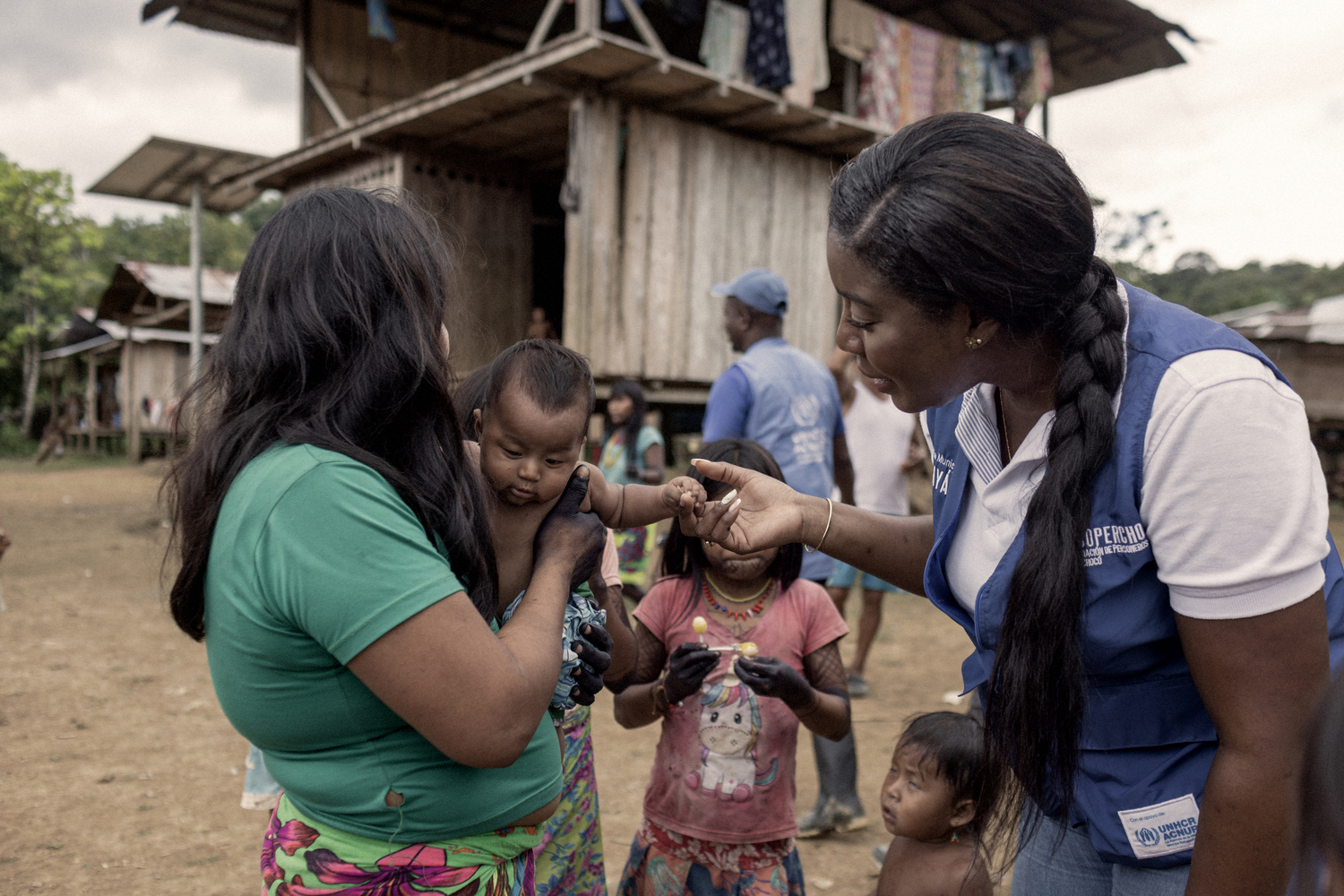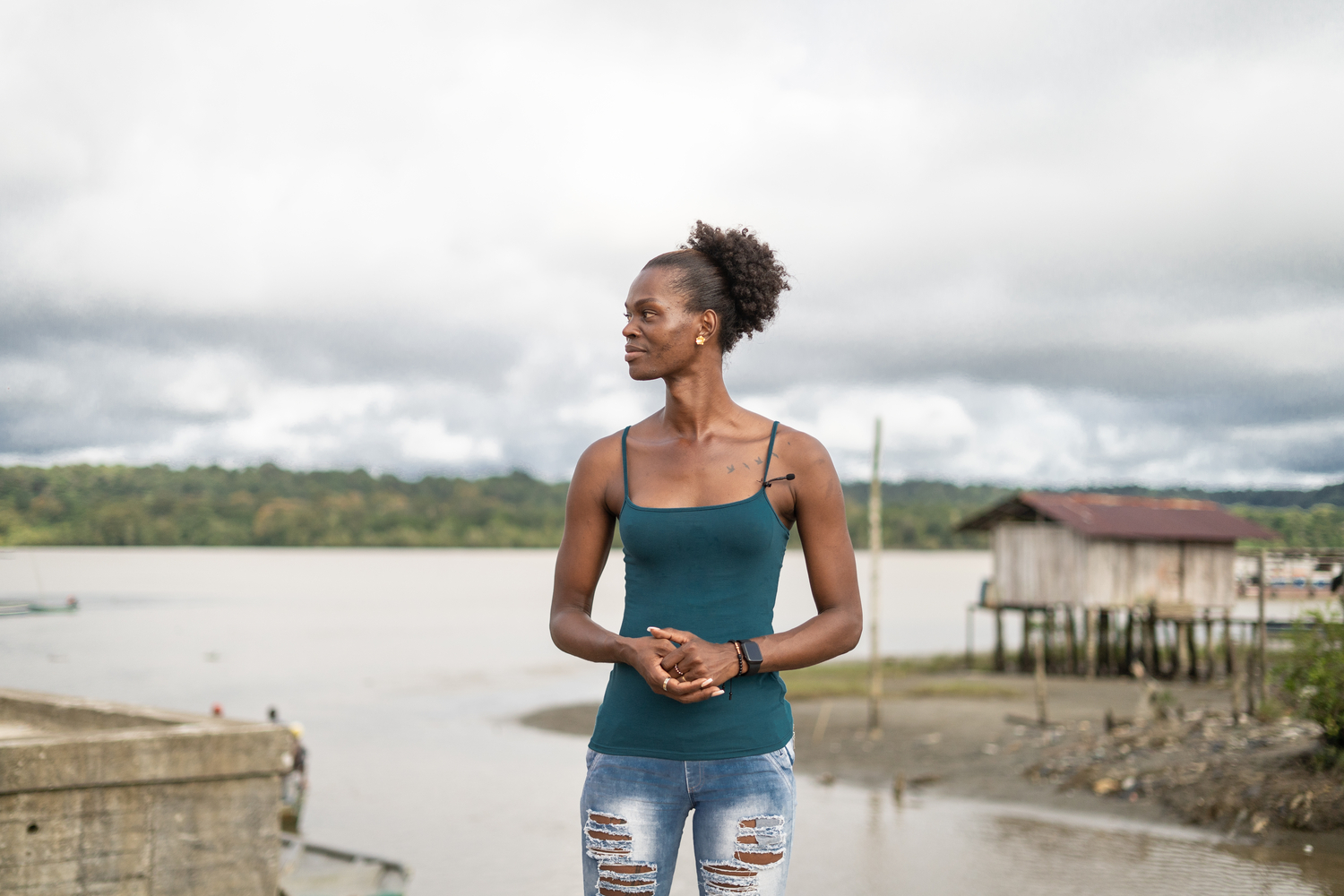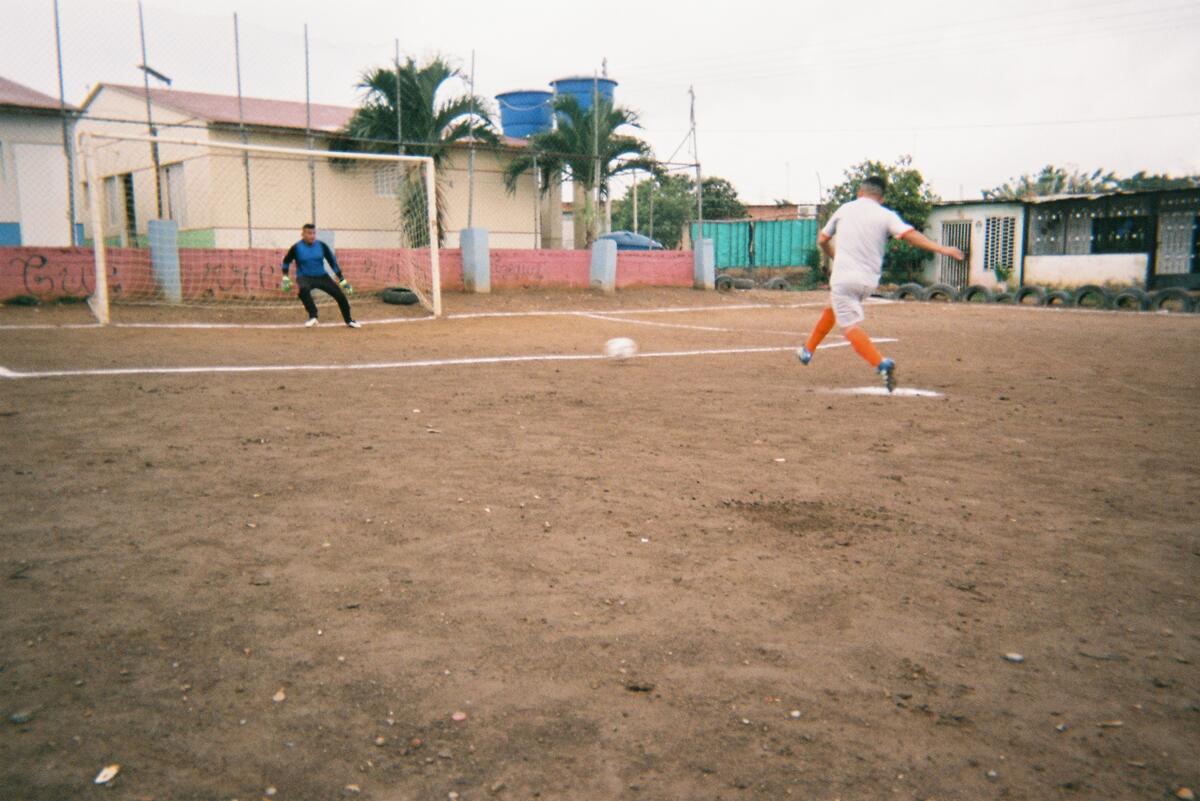Colombia's Congress calls attention to "grave human rights situation" of Bogota's displaced population
Colombia's Congress calls attention to "grave human rights situation" of Bogota's displaced population
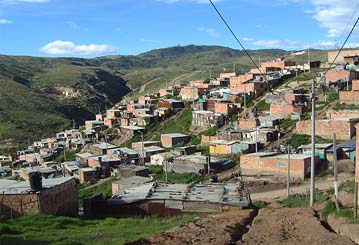
BOGOTA, Colombia, Aug 23 (UNHCR) - The UN refugee agency has met with the Colombian Senate and House of Representatives Human Rights Commissions to discuss ways to alleviate "the grave human rights situation" of the population in Altos de Cazucá, an area close to the capital, Bogota, which is home to tens of thousands of people displaced by the conflict raging in the country.
UNHCR was invited to participate in the public hearing in Bogota last Thursday, along with representatives of government and non-governmental organisations.
Each day, hundreds of people fleeing violence and persecution by irregular armed groups in the countryside head towards the relative safety of Bogota and surrounding areas such as Altos de Cazucá. Many of them cannot return to the homes they were forced to flee, but at the same time, face difficulties integrating into some of the city's poorest and most deprived areas.
According to government estimates, there are 2 million internally displaced persons (IDPs) in Colombia, while NGOs believe the figure is around 3.5 million.
In the case of Altos de Cazucá, many of the arriving IDPs there find a situation which is no different from the one they were escaping from. According to official figures, the number of violent deaths in the area, already one of the highest in the country, is on the increase as a result of the activities of irregular armed groups.
According to Venus Silva Gómez, representative to the house for the area of Altos de Cazucá, irregular armed groups exercise tight control over the life of the inhabitants of the zone with impunity. Violence and intimidation by these groups are a fact of life.
In the words of the UNHCR Representative in Colombia, Roberto Meier, "it would appear that the conflict is following its victims". In his presentation to the hearing, Meier, who paid a visit to Altos de Cazucá the previous day in order to see the situation there for himself, called on the authorities to work in a coordinated fashion to facilitate the integration and improve the security of the IDP population, as well as their access to education, health and other basic services.
In their presentations, the Director of the Office of the UN High Commissioner for Human Rights, the Mayor of Soacha (the municipality to which Altos de Cazucá belongs), the Director of the Colombian Institute for Family Welfare and representatives of NGOs working in the zone, agreed on the need to act promptly to put an end to the serious security situation and human rights abuses in the area.
The Ombudsman, Volmar Perez, called for an inter-institutional commission to be set up with the participation of UNHCR and other entities to follow up the recommendations made by his office to address the situation in Altos de Cazucá.
The commanders of the Armed Forces, General Carrreño, and of the National Police, General Castro, were present at the hearings, as well as several prominent senators and representatives.
The Chief of Police of Bogota and representatives from the Ministries of Education, Environment, Housing and Regional Development, Social Protection and of the Municipality of Bogota, answered questions about what measures the authorities were taking to ensure that the human rights of the inhabitants are respected.
Last year, UNHCR and the Senate's Human Rights Commission signed an agreement under which the UN refugee agency provides advice on the design of mechanisms to protect the rights of internally displaced persons in Colombia and to provide comprehensive assistance to displaced persons. UNHCR is also co-operating with the Senate and the Commission in the promotion and dissemination of national and international refugee and internal displacement legislation.
By William Spindler
UNHCR Colombia

